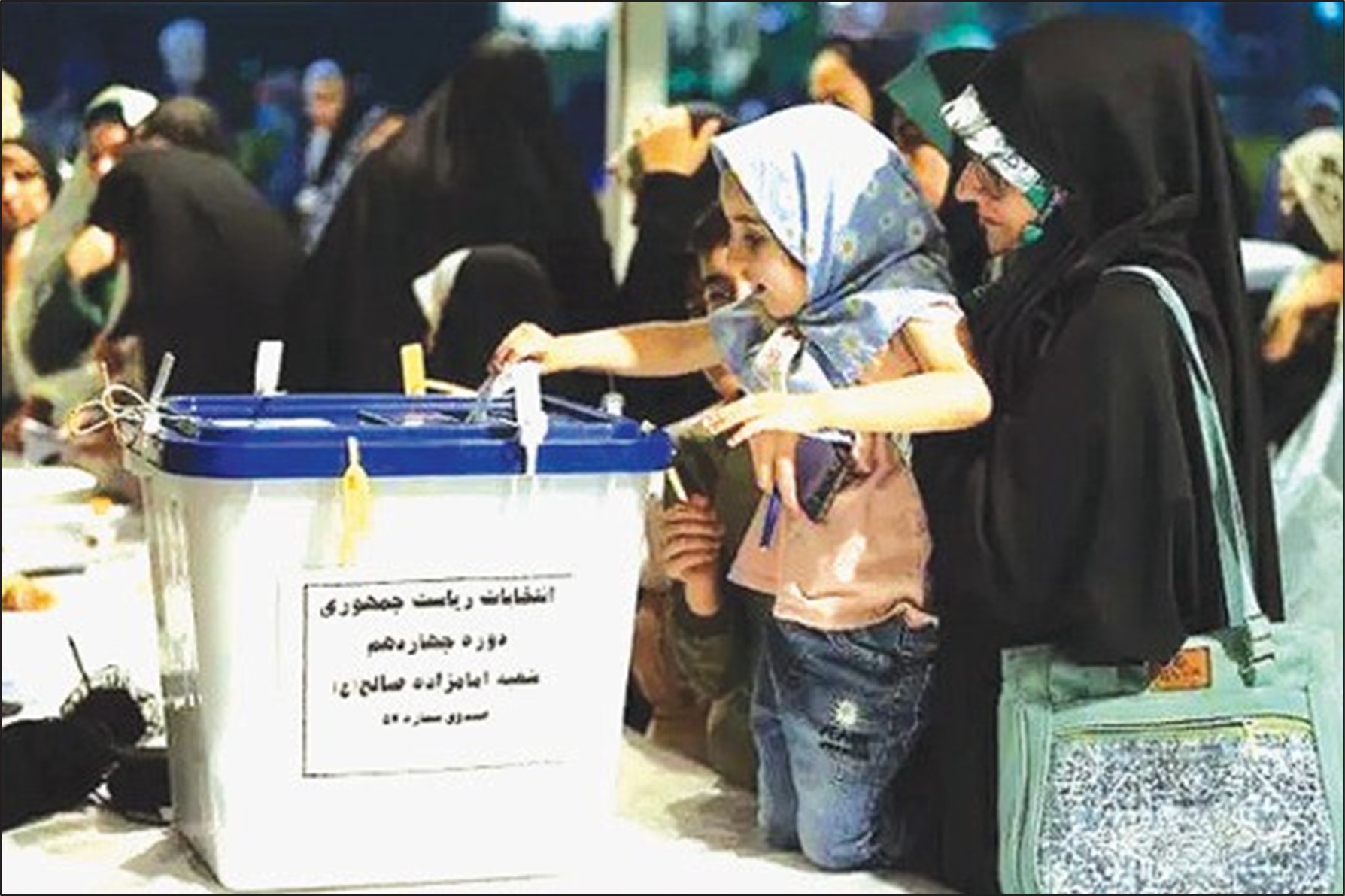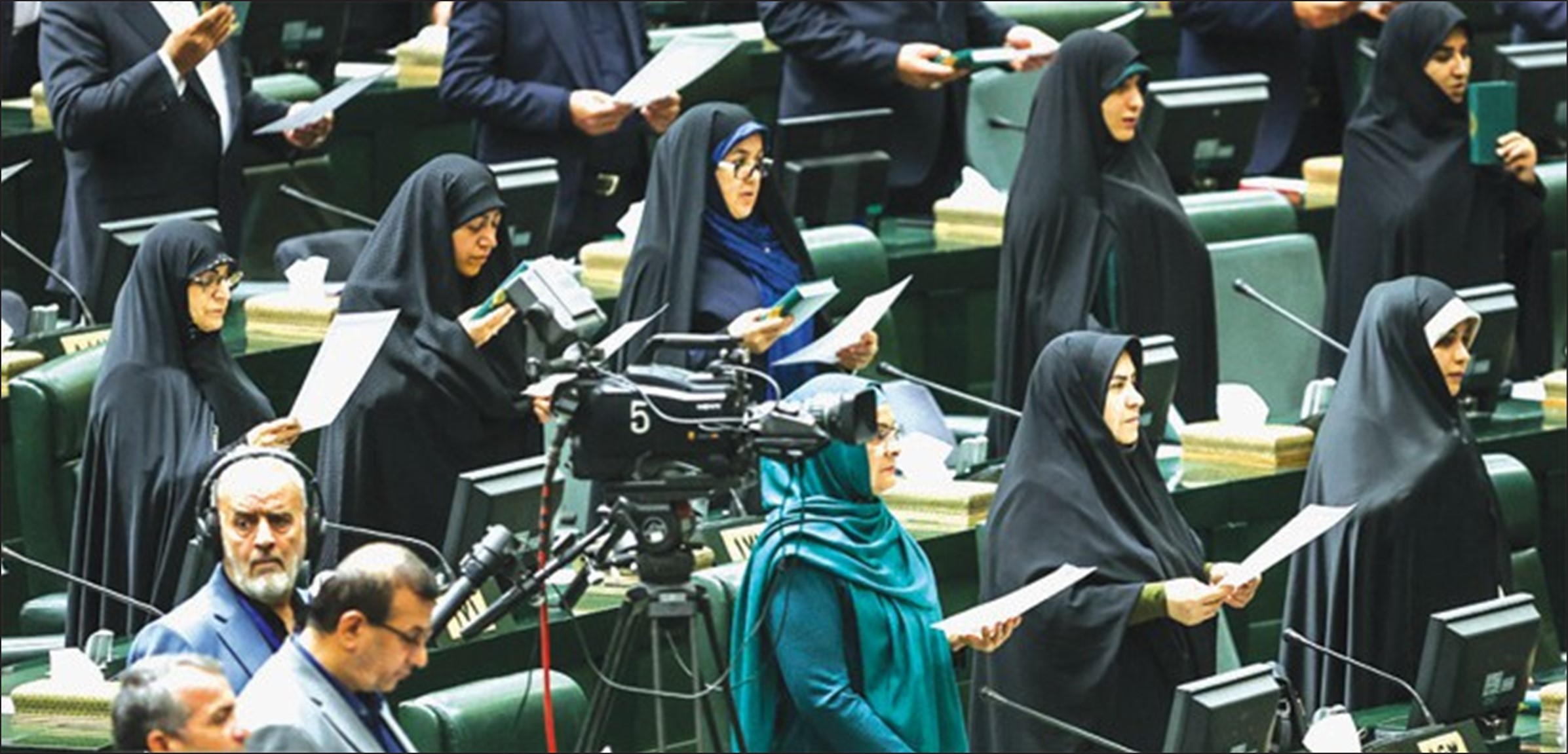July 5, 2024
The brief campaign for president showed Saeed Jalili portraying himself as a regime loyalist with no inclination to change any
policies, though promising more jobs and greater economic growth, while Reformist Masud Pezeshkian started out emphasizing his loyalty to the Supreme Leader before swiftly pivoting to underscore the need for Reformist changes in policy.
Pezeshkian emphasized ending the confrontation with the West, while Jalili emphasized continuing it, in one of the clearest distinctions in policy. None of the six candidates criticized the policy of mandatory hejab, but all except Jalili were critical of its enforcement, saying women were being abused and mistreated. Pezeshkian emphasized that he opposed violence to enforce mandatory hejab and said the regime’s current treatment of women was immoral

“I promise I will stop this behavior that is happening to our daughters and sisters on the streets,” he said. “Will arrests, confrontations and shameful behavior resolve this issue?… We will not be able to force women to wear the hejab.” Majlis Speaker Mohammad-Baqer Qalibaf said, “You cannot achieve anything with violence, tension and without respect. And Mostafa Pur Mohammadi, the one cleric running, said, “Under no circumstances should we treat Iranian women with such cruelty. Qalibaf summed up his view, saying, “We definitely do not accept gender equality, but gender justice is definitely our priority.”
He also summed up the heart of the issue: “Bad hejab is definitely the bane of our society and we should not allow this to happen. But the question is how.” The firm approach didn’t convince everyone. Sepideh, a 32-year-old teacher in Tehran, told The New York Times in an interview, “I don’t believe them. The president has no authority over this issue because it’s a red line for the Islamic Republic.” Jalili essentially ducked the issue by accusing the West of hypocrisy for condemning Iran’s treatment of women while ignoring the deaths of
women in the Gaza Strip.
The rule in the Islamic Republic is basically the same as the rule under the monarchy: When a policy is proclaimed by the Shah/Leader,
it is not debatable; when a policy is announced by a prime minister/president, it’s open season on debate. The requirement for mandatory hejab has been stated over and over again by the Supreme Leader, so the candidates could not touch it. On foreign policy, Pezeshkian was all by himself in saying he would seek better relations with Washington, stating flatly, “We will try to have friendly relations with all countries except Israel,” a break with the Supreme Leader who calls the United States the “enemy.”
However, even Majlis Speaker Mohammad-Baqer Qalibaf made clear he was prepared to sit down with the Americans and negotiate over the Joint Comprehensive Plan of Action (JCPOA). Pezeshkian may have gone too far for Supreme Leader Ali Khamenehi. The day after Pezeshkian spoke of improving relations with the United States, Khamenehi complained that politicians who are “attached to America” cannot be “good managers,” the logic of which was difficult to comprehend, but the political point of which was obvious. Pezeshkian did not back down, however, stating his goal was to “get Iran out of its isolation.” He said, “If we could lift sanctions, Iranians could live comfortably.”
Jalili did not agree. His repeated refrain was, “The international community is not made up of just two or three Western countries.” He said Iran should get closer to China and Russia and forge stronger ties with its Arab neighbors. He even ducked questions about negotiating with the West. Except for Jalili, all the candidates cited a need for new policies to get the economy moving and provide for more jobs and less
inflation. But none of the candidates provided any specifics. The opinion polls were not very accurate but did agree that Qalibaf slipped from first place to third during the campaign while Pezeshkian rose to first place.
Some thought a regime fear of Pezeshkian’s rise was behind the announcement that a Pezeshkian rally planned for two days before the first-round balloting had been canceled by the Supreme National Security Council. Qalibaf strangely packaged his program as a continuation of the much-maligned Raisi Admin istration. But even Pezeshkian vowed to implement the Seventh Five-Year Plan, which is a Raisi economic document. There was no criticism of Raisi or his policies, despite their unpopularity, apparently because the establishment viewed criticism of
“martyr” Raisi’s term as tasteless. Pezeshkian was the sole candidate to come out staunchly for the JCPOA, an agreement he said was to Iran’s advantage.
He condemned hardliners for sabotaging the agreement and thereby dealing body blows to Iran’s economy. Pezeshkian started out downplaying his position as a Reformist. But with each successive day, he became a more pronounced Reformist. Former President Mohammad Khatami, who publicly called for a boycott of the March Majlis elections, came out with a loud endorsement of Pezeshkian and
urged voters to turn out en masse. Former Foreign Minister Mohammad-Javad Zarif even appeared on television with Pezeshkian. But many other Reformists continued to call on the public to boycott the election, including Nobel laureates Shirin Ebadi and Narges Mohammadi. The Reformist movement was clearly split down the middle over whether to participate.
That question became even more prominent when Pezeshkian surprised the nation by coming in first in the first round of balloting. It was clear that if only those who cast ballots in the first round voted in the second round then Jalili would win because conservative voters in the first round outnumbered Reformists. Reformists immediately began arguing some saying Pezeshkian would not have enough power as president to make much difference and his election would just provide a stamp of legitimacy for the regime, while others argued it was necessary to put
Pezeshkian in the office in order to prevent the ultra-hardliners from having a free hand to impose their worldview. President Khatami embraced the first view, urging vote for Pezeshkian to provide “a glimmer of hope for change.”
On sanctions, all six candidates pledged to strive to get them lifted. None said how he would pursue that goal, except for Pezeshkian saying he would seek to restore the JCPOA, which provided for lifting many sanctions in exchange for Iran abandoning all efforts to enrich uranium to weapons grade. But only Pezeshkian and Pur-Mohammadi said eliminating sanctions was the key to economic growth. The others treated sanctions as a lower priority.
And Jalili put the emphasis on self-sufficiency and autarkic policies, a core ideological position dating from the revolution, although one discredited by professional economists. The regime’s resort to cutting off internet access got attention in one of the five televised debates, but none of the candidates showed much support for public frustration with the regime’s handling of the issue. Even Pezeshkian falsely claimed that all countries restrict internet access, a common assertion by regime officials.
He also complained that VPNs are used by Iranians to access “obscene” content. But he pledged to intervene when the regime went over-board on restricting access. Telecommunications Minister Issa Zarepur swiftly slapped down Pezeshkian and other candidates who promised the same thing by pointing out that presidents don’t control access, an authority given exclusively to a committee on which hardliners hold a majority.
Qalibaf seemed to be stealing a page from Donald Trump, when he blamed crime, drugs, unemployment and even divorce on the flood of illegal Afghan immigrants. “We must build a wall,” he said. Pezeshkian emphasized the need to improve relations with the world in order to attract foreign investment. But Jalili said foreign investment was not needed. The key to economic growth, he said, was national reconciliation.
